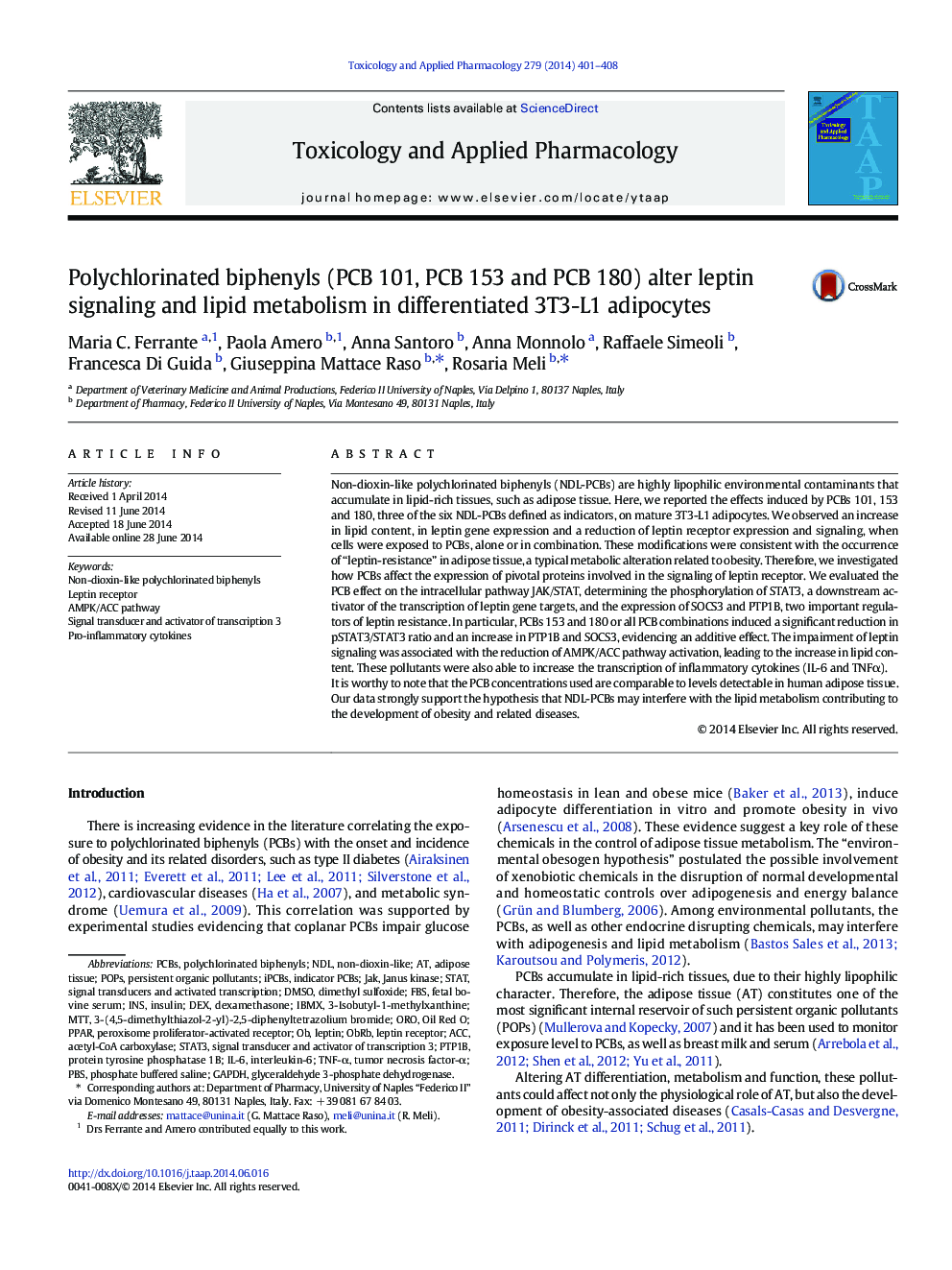| کد مقاله | کد نشریه | سال انتشار | مقاله انگلیسی | نسخه تمام متن |
|---|---|---|---|---|
| 2568559 | 1128465 | 2014 | 8 صفحه PDF | دانلود رایگان |

• NDL-PCBs alter lipid content and metabolism in 3T3-L1 adipocytes.
• Impairment of leptin signaling was induced by NDL-PCBs.
• NDL-PCBs reduce AMPK and ACC activation.
• NDL-PCBs induce the synthesis of pro-inflammatory cytokine by adipocytes.
Non-dioxin-like polychlorinated biphenyls (NDL-PCBs) are highly lipophilic environmental contaminants that accumulate in lipid-rich tissues, such as adipose tissue. Here, we reported the effects induced by PCBs 101, 153 and 180, three of the six NDL-PCBs defined as indicators, on mature 3T3-L1 adipocytes. We observed an increase in lipid content, in leptin gene expression and a reduction of leptin receptor expression and signaling, when cells were exposed to PCBs, alone or in combination. These modifications were consistent with the occurrence of “leptin-resistance” in adipose tissue, a typical metabolic alteration related to obesity. Therefore, we investigated how PCBs affect the expression of pivotal proteins involved in the signaling of leptin receptor. We evaluated the PCB effect on the intracellular pathway JAK/STAT, determining the phosphorylation of STAT3, a downstream activator of the transcription of leptin gene targets, and the expression of SOCS3 and PTP1B, two important regulators of leptin resistance. In particular, PCBs 153 and 180 or all PCB combinations induced a significant reduction in pSTAT3/STAT3 ratio and an increase in PTP1B and SOCS3, evidencing an additive effect. The impairment of leptin signaling was associated with the reduction of AMPK/ACC pathway activation, leading to the increase in lipid content. These pollutants were also able to increase the transcription of inflammatory cytokines (IL-6 and TNFα).It is worthy to note that the PCB concentrations used are comparable to levels detectable in human adipose tissue. Our data strongly support the hypothesis that NDL-PCBs may interfere with the lipid metabolism contributing to the development of obesity and related diseases.
Journal: Toxicology and Applied Pharmacology - Volume 279, Issue 3, 15 September 2014, Pages 401–408